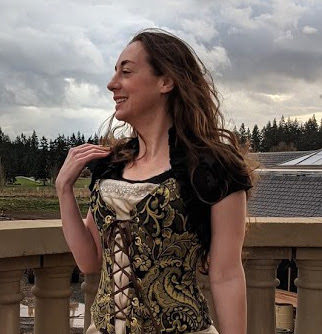Stats
A successful non-fiction book sells 7,500 copies.
A successful fiction sells 5,000 copies
200,000 titles are published each year in the U.S. alone.
If a first time novelist sells more than 1,000 copies they are doing better than average.
Mid-size & Large Publishing Houses
Pros
• Larger distribution.
• They pay for the production and advertizing costs.
• The success of your book is in their interest. (They want to make money.)
• You have an army of people working for you.
• More likely to get an offer for movie rights.
Cons
• Publisher controls distribution.
• Publisher controls the way the book is produced.
• Publisher wants to make money. You have to stand your ground so you get paid to.
• Pick your battles.
• Have no control over the films based on your book, but people will still judge you as an author by how the screenwriters manipulate your story.
Small house publishing, POD and Vanity (Shared investment costs)
Pros
Don’t need an agent – Don’t have to pay an agent
More likely to get accepted
Don’t have to pay for all costs
May have a standing with their niche and specialized book stores. Example: LDS Christian, other Christian, romance, special children’s, cause promotion,
Good for genre writers.
Build a track record and following to take to another publishing house.
Cons
Might not have as large of distribution as larger publishers
You might have to do all or part of your own advertizing (Some publishers only pay for the cost of printing and distribution)
Might get offered a bad contract. (Don’t be afraid to renegotiate!!! If there is a profit to be made most small publishers are amendable.)
Might be shady or inexperienced business owners.
Some focus on quality of authors and not quality maybe it has.
Self Publishing
Pros
You keep 100% of the profit
You keep 100% of the control
Still have the option of going with a publisher later
Develop a sales track record
Don’t have to query (no rejection letters!)
Don’t have to wait for YEARS for your book to hit the selves.
Choose your own cover!
You don’t have to pay a publisher or agent. ( you shouldn’t ever give them money but you will be paying them when they take a percentage of your sales. Cutting out the agents and publisher’s high over head.
Cons
You have to put up your own production, advertizing and tour cost.
You are a one man band as the producer, designer, PR representative, networker, distribution manager, advertizing agent, etc.
A self-published author can no longer be listed as a debut author if you later go with a bigger publisher
You can lose TONS of money if you fail
You can print you book before its really ready and embarrass yourself in front of all your friends and family
A lot of people have a negative view of this and there are certain clubs that won’t recognize you as a “real” author if you are self published but that’s bull. You need to maintain your confidence and silently know that you are making more per book than they are.
Can you still sell as many books as traditionally published authors if you self publish?
USA Today writes: “This January [Amanda Hocking] sold more than 450,000 copies of her nine titles…. Novelist J.A. Konrath…has sold more than 100,000 self-published e-books.”
"The Beanie Baby Handbook by Lee and Sue Fox sold three million copies in two years and made #2 on the New York Time Bestseller list." -Groundbreaking.com
26 year old Amanda Hocking became a self made millionaire in a few months.
J.A. Konrath says “I'm currently selling $1.99 ebooks at the rate of 170 per day. That means I'm earning around $120 per day just sitting on my butt. If this trend continues as-is, I'll earn $43,800 this year on previously published short stories and novels that NY print publishing rejected.”
J.A. Konrath gives ten reasons for his success.
1. Being known.
2. … blog.
3. Low price.
4. Being on the Kindle genre bestseller lists.
5. Word of mouth.
6. Promotion.
7. Cross Pollenation. (for larger target market audience)
8. Decent stories.
9. Good covers and product descriptions.
10. New content.
More details at http://jakonrath.blogspot.com








Thanks! Interesting comparison.
ReplyDeleteThis comment has been removed by the author.
ReplyDeleteGood information here. We all have our own paths to choose, so it's vital to have as much information about each path as possible.
ReplyDeleteGreat post, very interesting and useful breakdown.
ReplyDeletecheers,
mood
Moody Writing
@mooderino
Yes, exactly. Well put. You really hit the whole of it, which makes it obvious while so many people can and should go different ways based on their needs/desires.
ReplyDeleteThank you, Deirdra, I really appreciate all the information and I learned a lot.
ReplyDeleteTake care,
Kathy M.
I just finished my first novel last month. One of my beta readers (Her Blog), who is a self published author - suggested that since it is done - should start sending query letters. She says I can finish the editing on the way. Yikes!
ReplyDeleteAnyway, I really appreciate the post because the topic of which route to take has been on my mind lately. Thanks!
From what I understand, unless you're deemed a best-selling author, you do most of your promotions regardless.
ReplyDeleteInteresting...depressing...uplifting...all at the same time.
ReplyDelete